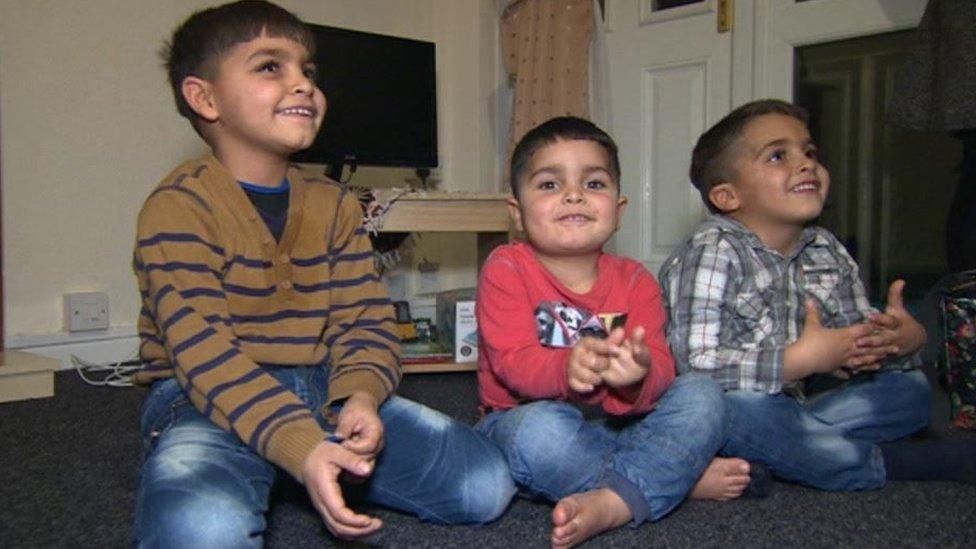Belfast's after-school club for Syrian refugees
- Published
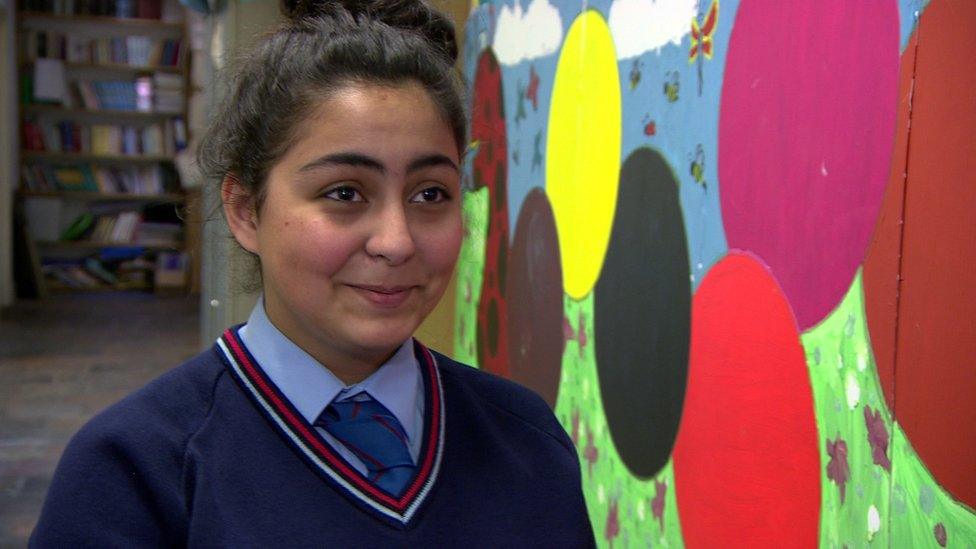
Mona Arnous did not speak any English when her family arrived in Northern Ireland last year
Mona Arnous is 13-years-old, likes art and science and wants to be a doctor or nurse.
But while her likes and ambitions are not unusual, her journey to Northern Ireland has been anything but ordinary.
She is one of about 500 refugees from the conflict in Syria who have settled in Northern Ireland since late 2015.
She is also one of more than 20 Syrian children who get extra help with their education at an after-school club at the Conway Education Centre in Belfast.
The centre runs homework support classes for refugee children four days a week.
'Accent is important'
Local volunteers, including teachers, give up their time to help with homework, language study and exam revision.
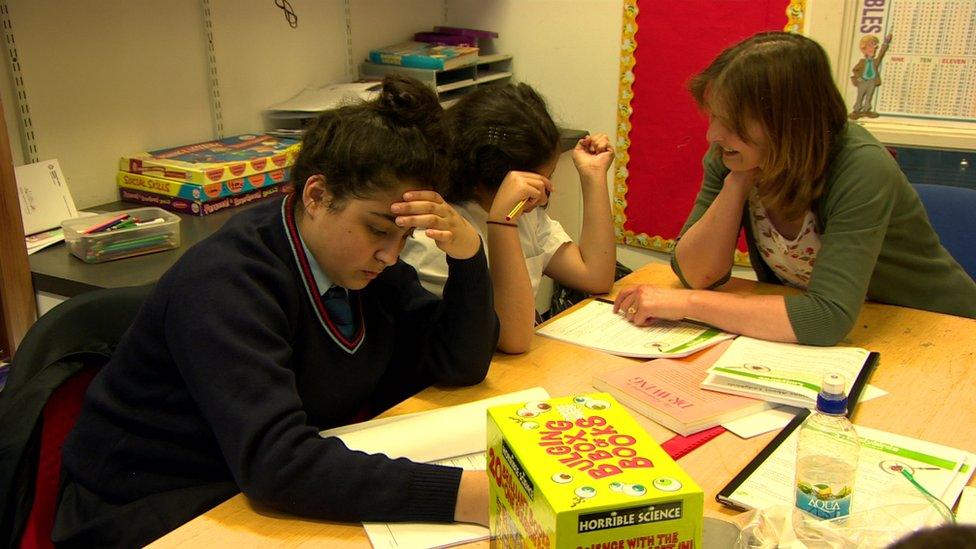
The Syrian students get extra tuition from unpaid teachers
Mona arrived in Belfast with her parents and three younger sisters more than a year ago, after spending three years in a refugee camp in Jordan.
"When I came to here, I didn't have any language, I didn't speak any English," she said.
"I couldn't understand my friends and what they were talking about, and the accent is important.
"So I tried to learn the accent too, so that's now easy to me."
"I now speak English better than Arabic!"
Mona definitely speaks with a Belfast inflection in her voice, but her family underwent a harrowing journey after fleeing Syria.
'No water, no food'
"I went walking to Jordan and stayed for a couple of days in the desert," Mona said.
"They were long days with no water, no food, no anything."
"I have three sisters and they were crying and wanting water."
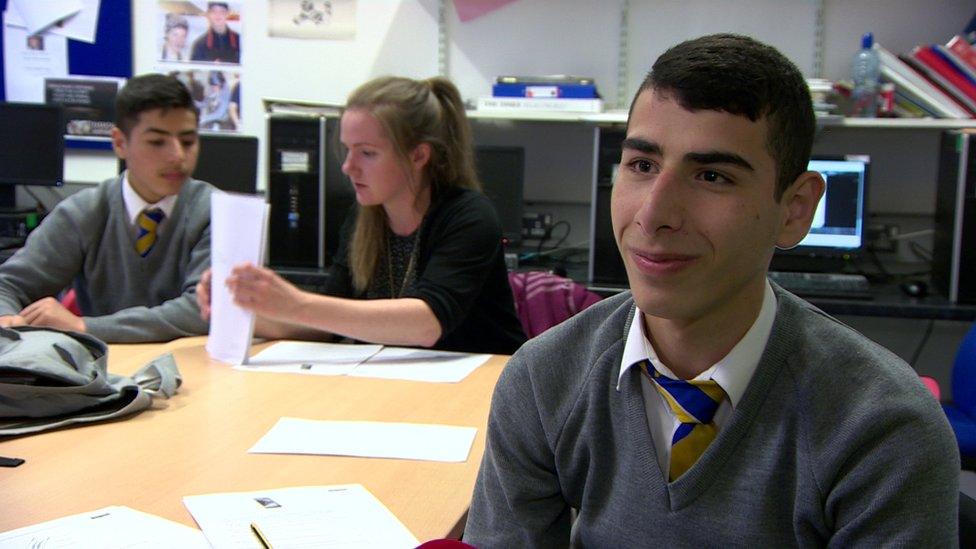
Like Mona, 16-year-old Omran knew no English when he arrived and has worked hard to learn the language
Elsewhere in Conway Education Centre, 16-year-old Omran Al-Haj-Kadour is getting help preparing for his double award science GCSE.
Now a student at Corpus Christi College in west Belfast, he arrived in the city a year ago after spending three years in a refugee camp in Lebannon.
He originally comes from north Syria, not far from Aleppo.
'English on Youtube'
Like Mona, he knew no English when he arrived and has worked hard to learn the language.
"The English language is very hard and it took me a time to learn it, you know," he said.
"It took me about four months to be able to speak English.
"I studied about 12 hours every day from about eight in the morning until nine at night.
"I studied at school and after school I got English lessons and then I watched teachers teach English on Youtube."
Omran loves his life in Northern Ireland and wants to be an engineer.
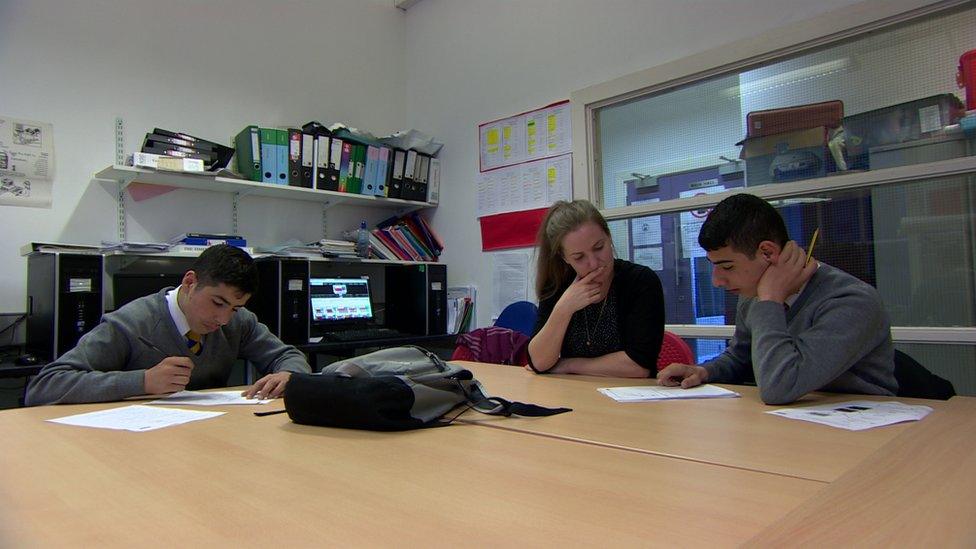
A volunteer teacher is helping Omran and his brother with their GSCE studies
"I do my GCSEs this year, and I get a lot of help in school from my teachers and my principal.
"I come to Conway to get help in my homework and to improve my English."
'Hungry for learning'
Pauline Kersten is the manager of Conway Education Centre and she marvels at the determination and resilience of the refugee children.
"They are so hungry for learning and they are happy to be here," she said.
"They're eager, they're keen, they're intelligent, and they want to do their homework and they want to do it well.
"Many people don't realise what they've come through - they've fled for their lives."
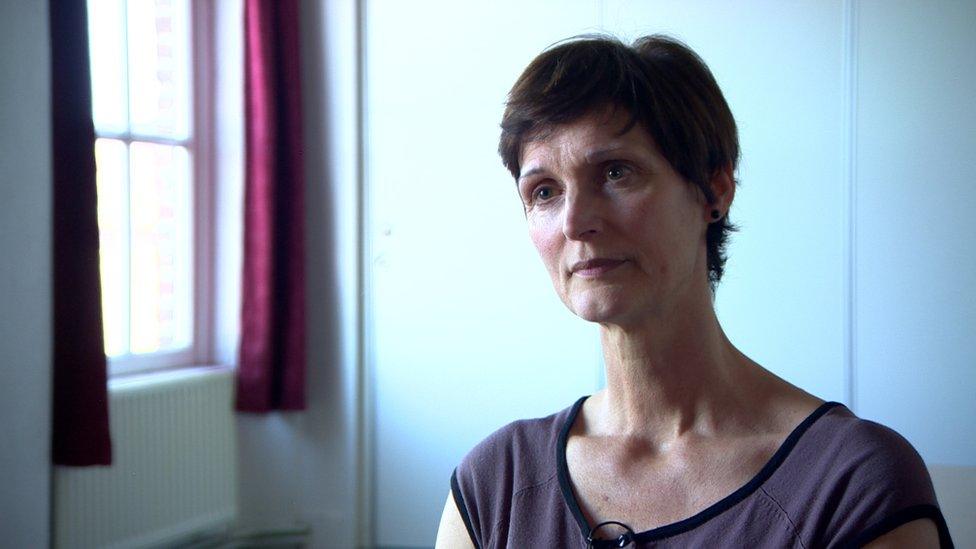
Manager Pauline Kersten said she marvels at the determination and resilience of the refugee children
She added: "They work so hard to learn the language as it's key to integration and to getting on in school.
"And they work so hard to get to know the culture.
"They want to integrate and they have overcome so many obstacles to get here.
"These children have seen things that nobody should ever see, but they are here and they are trying to make a life for themselves."
Some of the children's parents also come to Conway Education Centre to learn English.
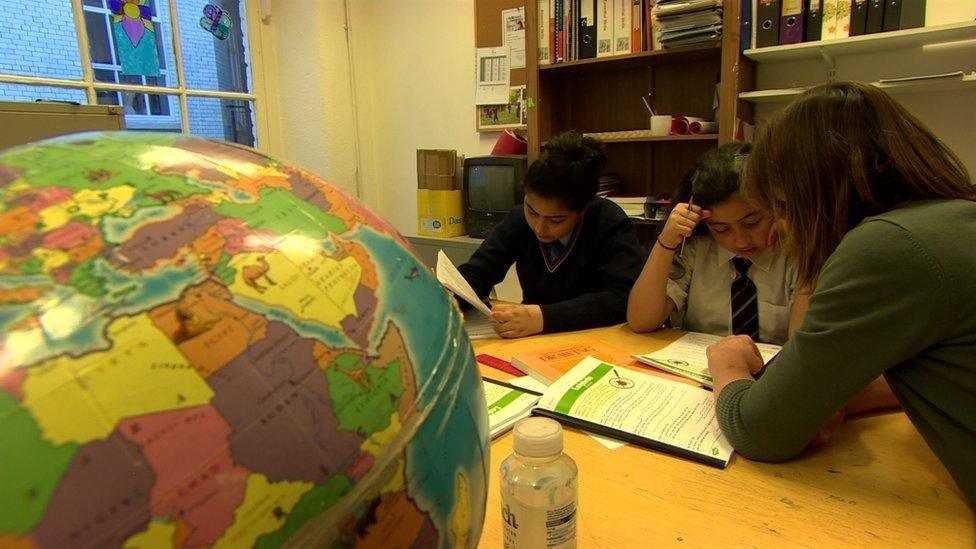
Some of the children had a harrowing journey to Northern Ireland
Omran, meanwhile, is studying for his science GCSE alongside his younger brother, who is also a pupil at Corpus Christi.
But, in some ways, he thinks Northern Ireland pupils do not realise how good they have it.
"I find school here very, very easy - easier than Syria," he laughs.
"The school is Syria was very, very hard."
- Published29 April 2016
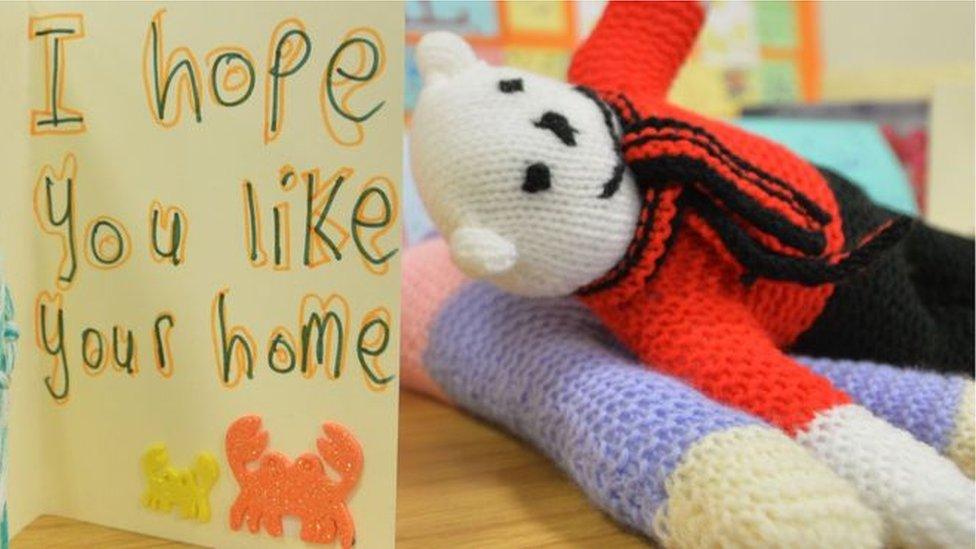
- Published15 January 2016
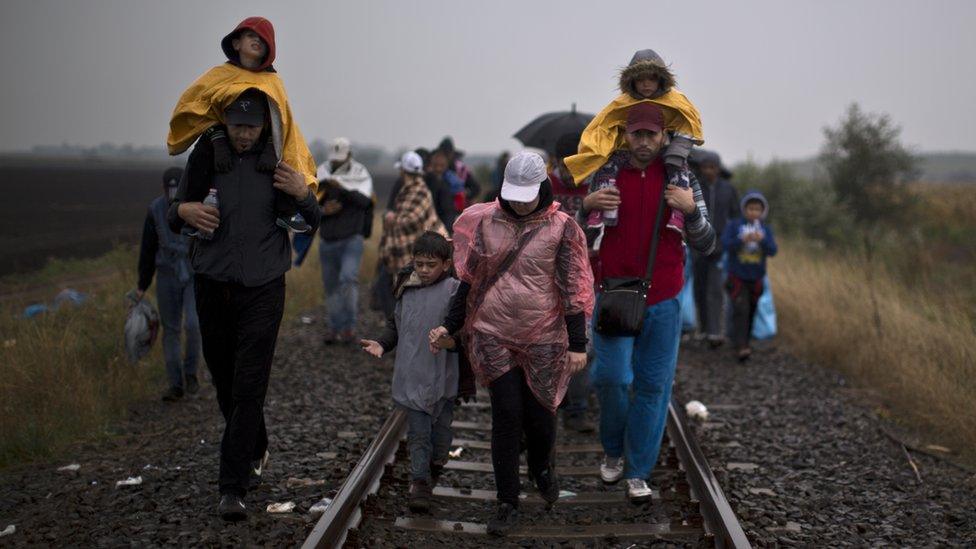
- Published16 December 2015
